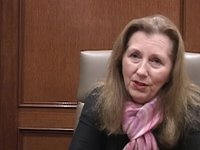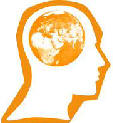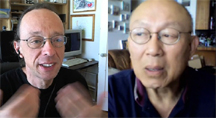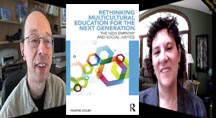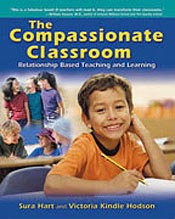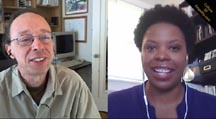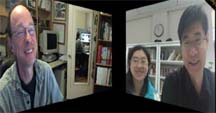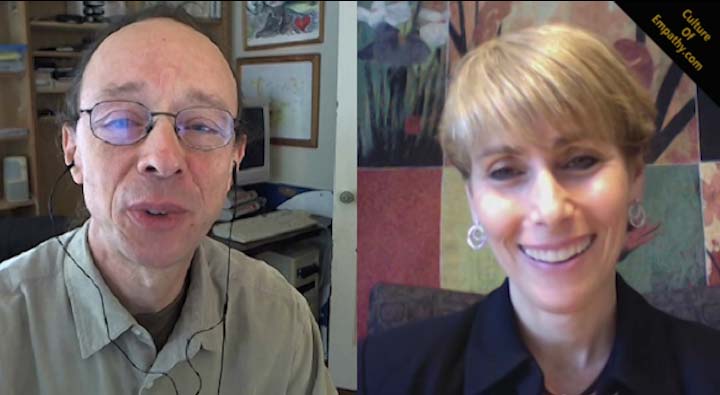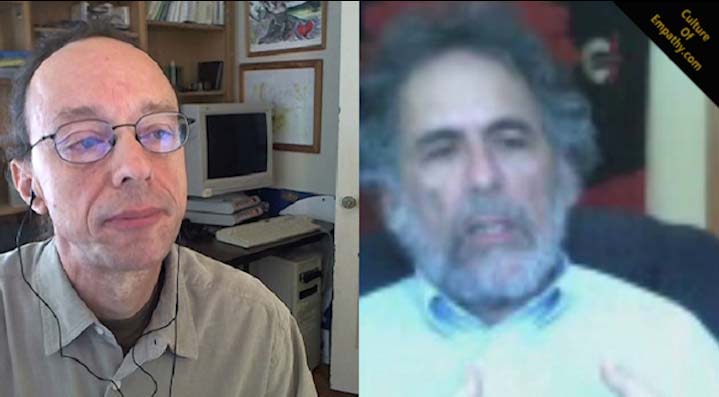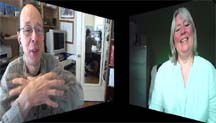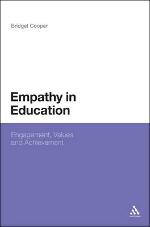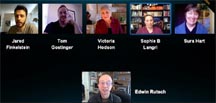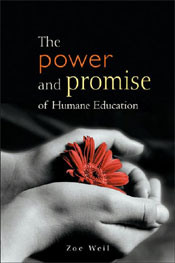|
|
Conference
- Panels
-
Possible Panels
- Facebook
Event -
Education -
Volunteer - [Planning]
International Online Conference on:
How Might We Build a
Culture of Empathy?
Permanently Ongoing
Sub Conference:
How to Nurture, Foster and Teach Empathy in the
Education System?
http://j.mp/JNDbGl
A
section of the conference is specifically about how to How to
Nurture, Foster and Teach Empathy in the Education System? We invite
educators to join and propose panels on this topic.
Interviews and Panels.
|
|
|
|
|
|
|
Best Ways to Learn, Practice
and Deepen Empathy
Michele Borba
|
|
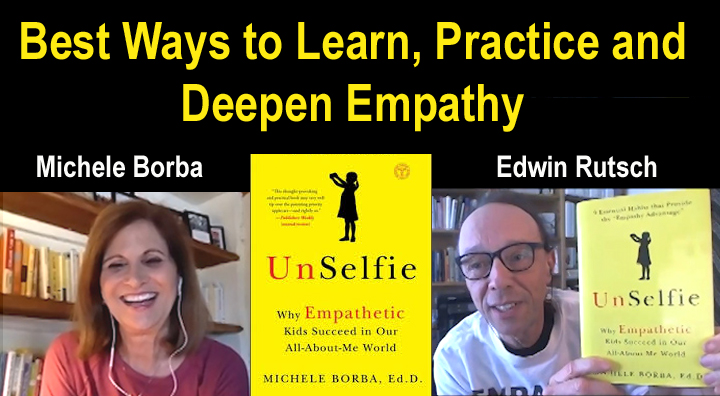 |
|
Michele Borba,
is an internationally renowned educational psychologist and an expert in
parenting, bullying, and character development. She is an award-winning
author of twenty-two books translated into fourteen languages. One of the
foremost authorities on childhood development in the country, she is a
regular NBC contributor who appears regularly on Today and has been
featured as an expert on Dateline, The View, Dr. Phil, NBC Nightly News,
Fox & Friends, Dr. Oz, and The Early Show, among many others.
She is author of,
UnSelfie: Why
Empathetic Kids Succeed in Our All-About-Me World.
"Empathy is the root of
humanity and the foundation that helps
our children become good, caring people. But the Empathy Advantage
also
gives them a huge edge at happiness and success."
Sub Conference: Education |
|
|
|
|
|
Emotional Intelligence: Going On An Empathy Adventure
Susan Stillman and Edwin Rutsch
|
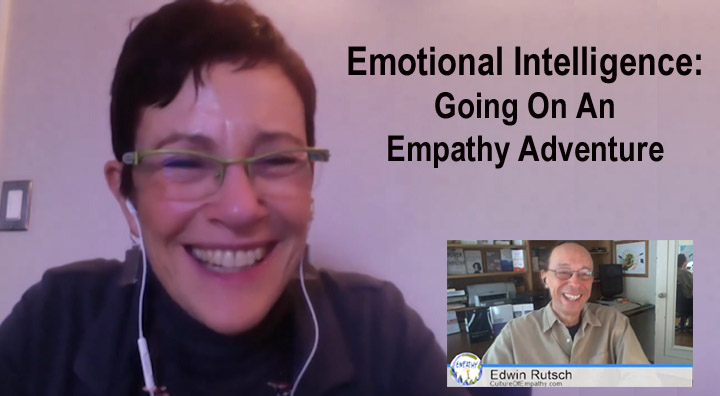 |
|
Susan Stillman is Director of Education at
Six Seconds, The
Emotional Intelligence Network, Institute for Social Innovation. Through
the Six Seconds website, she is hosting the
Empathy Adventure
over a six weeks period.
Susan writes,
"Empathy is one of the vital competencies of the 21st century. Empathy
is related to collaboration, building trust, problem solving, health,
and peaceful resolution of conflict. It is an essential component of
leadership and critical to success in business and education. Empathy
and compassion may even be key to the survival of the human race.
Empathy can be viewed even more broadly as compassionate action. So
we’re inviting you to this Empathy Adventure — where we’ll come together
online to discuss the many types of empathy and then perform a few
simple acts of empathy that will ripple out to many others. Through
personal stories of group members and empathy “experts,” the group will
develop a deep awareness of empathy. We’ll observe what happens when we
invite empathy to be more present in our lives, and document the way it
affects us and our interaction with others. Over approximately six
weeks, the project will follow these three stages..."
Sub Conference: Education
|
|
|
|
|
|
|
|
Thea Blair:
Got Empathy? The
Foundations of Empathy
|
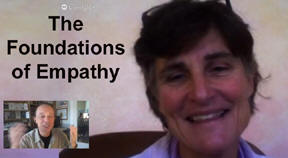 |
|
Thea Blair is a Waldorf teacher, and a Pediatric Massage
Therapist. She operated a successful, Waldorf-inspired pre-school out of
her home for fourteen years. Observing the amazing results of touch, either
playful or comforting, in resolving children's emotional stress led her to
seek a massage training. She now works as a parent and teacher coach, and a
touch educator.
Thea brings Peer Massage to schools as a consultant. She is
available for talks and workshops about touch, parenting, and childhood
development. In this dialogue we discussed her empathy
research and insights.
|
|
Thea wrote a
research paper on empathy: "The
Role of Motor Development in the Development of Empathy" and holds "The
Foundations of Empathy" presentations on empathy as well. She
writes: "The ability to empathize develops with contributions from
various biologically and environmentally based factors. These factors
include genetics, child temperament, parenting factors such as warmth,
parent-child synchrony, and other qualities of the parent child
relationship, and physical imitation such as facial mimicry and motor
imitation, using areas of the brain such as the mirror neuron system and
the limbic system. In this paper I will explore how motor development
supports the development of empathic awareness."
Sub Conference: Education
|
|
|
|
Eva Scherer Building Empathy with Children, Touch & Massage
|
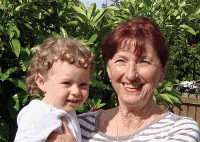 |
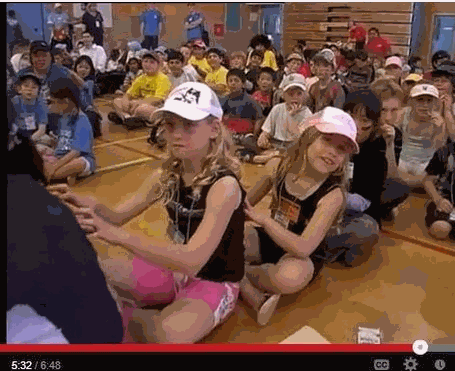 |
Eva Scherer, professional body worker and the
owner of several Sports & Therapeutic massage clinics in Auckland. In
2000 with like-minded professionals, Eva established
Child Connection
Trust, a registered charity. |
|
The aim of this organization is to introduce massage
into the mainstream education system as a low-cost prevention for child
abuse and family violence. Since then, her award winning Children
Massaging Children programme has benefited children in New Zealand as
well as overseas.
"Our programmes teach Peace and Empathy in the purest
way... Most people would react with surprise or
disbelief at the concept of empathy being taught in schools; however, this
idea is more than mere wishful thinking. The idea of teaching children
empathy has been the subject of extensive research in New Zealand and also
the focus of at least two Master's degree theses in Poland."
Sub Conferences: Education and
Home-Family
|
|
|
|
Hunter Gehlbach: How to Build a Culture of Empathy in Education
|
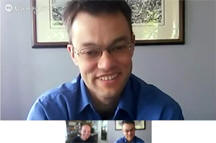 |
|
Hunter Gehlbach is
Associate Professor of Education at
Harvard Graduate School of Education. He is an educational psychologist who brings social
psychological principles to bear on educational challenges. His
research focuses on improving educational settings through enhancing the
social interactions of teachers and students. His specific interests within
social psychology focus on social perspective taking – how people discern
the thoughts and feelings of others within the classroom. |
|
Hunter says, "Education is a fundamentally social act. Almost all
classroom learning (and much of the learning that occurs outside of
schools) involves social interaction – even reading entails communication
between author and reader. Our lab group’s research strives to enhance
these social interactions. Primarily through bringing social psychological
principles to bear on educational problems, we aim to impact students’
(and teachers’) learning, motivation, behavior, and psychological
well-being. Our group focuses particularly on social perspective taking –
the capacity to figure out the thoughts, feelings, and motivations of
others – which we view as the core aptitude that people employ to navigate
their social world. By helping teachers and students improve their social
perspective taking and better understand where each other are coming from,
we aspire to improve the classroom experience for both students and
teachers."
Sub Conferences:
Education and
Science
|
|
|
|
Gil Lavie:
Global Empathy Experiment - How to Build a Culture of Empathy
|
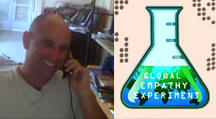 |
|
Gil Lavie is a Viral Advertising Expert and started the
Global Empathy Experiment (GlobalempathyExperiment.org)
in one of his classes at the the Interdisciplinary Center Herzliya,
Israel. He say, "I'm half art - half science. My interests are
memes, humor, empathy and other fascinating notions. I had a 10-year
career in hi-tech global marketing. Then I started one of the first viral
ad agencies in 2002, where I created over 50 viral video commercials that
organically reached out to hundreds of millions of viewers". |
"Globalizing empathy is a step towards a better society,
developing care and understanding that cross geographical, social and
species boundaries. Can us caring lead others to care? And can this care
be translated into actions? Actions like saving lives, spreading love,
reaching out and giving a helping hand… We are simply students creating
a platform for promoting Empathy by crowd-sourcing creativity & humor."
Sub
Conferences:
Education |
|
|
|
Maryam Sakeenah: How to
Build a Culture of Empathy in Pakistan
|
|
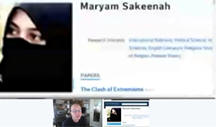 |
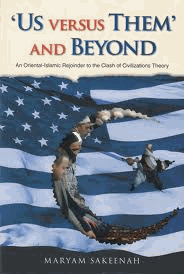 |
Maryam Sakeenah
is a social worker, teacher, and freelance writer living in Lahore,
Pakistan. She teaches Literature, Islamic Studies and Sociology.
She is leading a project for virtual education for
underprivileged school children. |
|
Maryam also authored a book documenting
Islamic and Oriental responses to the Clash of Civilizations, titled
Us Versus Them and
Beyond: An Oriental-Islamic Rejoinder to the Clash of Civilizations
Theory.
I talked with Maryam from her home in Lahore, Pakistan
about her article, The
Murder of Human Empathy.
This was her response to the recent attacks on Christian homes in Lahore.
She writes,
"Empathy is curbed and limited through narrow, parochial banners of
ethnicity, nationalism, race and creed so that the empathic drive does
not extend to the out-group. The out-group is then ‘otherised’. However,
a more severe form of this is dehumanization of the other, often
institutionalized by the social superstructure: state, media, education,
religion."
She calls for leaders (especially religious leaders) in
Pakistan to stand up and advocate for fostering empathy for
all people.
"Empathy humanizes and civilizes. Its suppression
intensifies secondary drives like narcissism, materialism, violence and
aggression. The task of religion, education and the media must be to bring
out the empathic sociability stretching out to all of humanity..."
Sub Conferences:
Education |
|
|
|
Bob Kane,
James D'Amanda & Edwin Rutsch: How to Build a Culture of Empathy
in Education
|
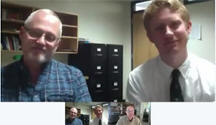 |
|
Bob Kane is Director of the Center for Mindfulness &
Empathy Education (CMEE) at The Harley School. Bob teaches Hospice
at The Harley School. As an end-of-life care educator and hospice nursing
assistant, he continues to mentor high school students to provide comfort
care to the dying and their loved ones James
D'Amanda is a Grant Writer and Event Manager at CMEE, as well as, a
freelance writer. |
The Center
for Mindfulness and Empathy Education
at the Harley School has the mission to
empower Nursery-12 teachers, students, staff and parents with the
requisite tools and support necessary to foster a sustained, compassionate
presence through the development and nurturing of programs that demand
authentic human engagement, stimulating our inborn capacity to
compassionately connect to and understand others, embracing their
situation as our own... The center evolved in response to the
increasing recognition that mindfulness and empathy play an indispensable
role in humanizing our educational systems... We don't have a
School uniform. But we do require you to walk in someone else's shoes.
Sub Conferences:
Education |
|
|
|
Bob Sornson: Dialogs on How to Build a Culture of Empathy
in Education
|
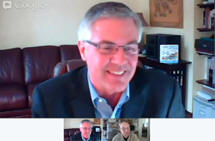 |
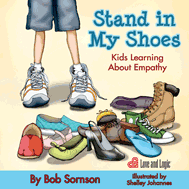 |
Bob Sornson was a classroom teacher and school administrator for
over 30 years, and is the founder of the
Early Learning
Foundation. He
works with schools and education organizations across the country,
focusing primarily on developing
comprehensive programs which support early learning success, |
building classroom and school culture
to support the development of social and behavior skills, and offering
parent training.
Bob is the author of a number of books including:
Stand in My Shoes: Kids Learning About Empathy.
"When Emily asks her big sister what the word empathy means, Emily has
no idea that knowing the answer will change how she looks at people...
Empathy is the ability to notice what other people feel. Empathy leads
to the social skills and personal relationships which make our lives
rich and beautiful, and it is something we can help our children learn.
This book teaches young children the value of noticing how other people
feel. Were hoping that many parents read it along with their children."
Sub Conferences:
Education
|
|
|
|
Kathryn Lee:
How to Build a Culture of Empathy with Education
|
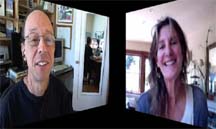 |
|
Kathryn Lee is Director of Innovation, Partnerships, and
Service at Prospect Sierra School in El Cerrito, California. She was an
organizer of the
'TEDxGoldenGateED: Compassion and Education Conference'
held in Richmond, California which had over 700 attendees. Prospect
Sierra is an innovative school that has been at the forefront of
incorporating empathy and compassion into it's curriculum including the
Root's of Empathy and the StartEmpathy programs. |
How can we build a culture of empathy?
Celebrate, Educate, Discover, and Uncover. I believe that empathy
is not only a muscle that needs regular exercise to stay strong, but
that there are stages in the development of empathy, and essential
skills to be learned. For example, if you feel for other people,
but your speech doesn't convey that, then you might not really be
helping to create a more empathetic society.
Also, to be an effective communicator
in the world, one must know how to listen for understanding, convey
that in words and body language, AND have advocacy skills. We can't
listen our way out of a problem. Sometimes empathy requires strong
action -- compassion -- and it might not always be cum-by-ah.
Sub Conferences:
Education
|
|
|
|
Susan Partnow: Dialogs on How to Build a Culture of Empathy & Compassion
|
 |
 |
Susan Partnow is an organizational development and training
consultant and teaches Compassionate Listening and many other empathy and
compassion building processes Contributor to the book: Practicing the Art of Compassionate Listening
|
How to Build a Culture of Empathy & Compassion?
1. Set the Intention (value it; talk about it; name and invite it).
2. Slow down to the speed of wisdom to make
space for it.
3. From the Inside Out: Cultivate self awareness and regulation - know
your triggers; do the practice with compassion & BE Compassion.
4. Build community from these principles - to embrace conflict,
differences, challenges as opportunities to deepen intimacy,
understanding, connection - and find creative solutions like Restorative
Circles.
Sub Conferences:
Education
|
|
|
|
Jan
Hutton: Dialogs on How to Build a Culture of Empathy and Compassion
|
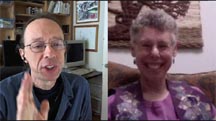 |
|
Jan has served as a community organizer, social
worker in hospice and hospital settings, meditation teacher, group
facilitator in the Quaker community and, she hopes, a ‘kind’ person. The
guiding principle for Jan’s work as a facilitator is, “How do we look at
those who differ from us and see our shared humanity?”
|
She
offers Compassionate Listening Training with the
strong belief that implementing peacemaking in the public sector makes
it vital that we practice, heart to heart, that very same peacemaking
in our personal lives. To build a culture of empathy we each
take responsibility for acknowledging the fear that our own hearts
might break when empathizing with someone else's pain?
Sub Conferences:
Education
|
|
|
|
Leah
Weiss: Dialogs on How to Build a Culture of Empathy & Compassion
|
 |
 |
Leah Weiss Ekstrom is a Contemplative Educator whose
research and teaching focuses on the application of meditation in secular
contexts.
Currently, Leah is Director of Compassion Education at
Stanford's Center for Compassion and Altruism Research and Education
(CCARE). |
Leah directs the CCARE: Compassion Training Course (CTC) professional
education program as well as other educational initiatives such as the
application of compassion meditation in schools.
"The
Compassion Training Course is a nine-week program designed to develop
the qualities of compassion, empathy, and kindness for oneself and for
others. The CTC integrates traditional contemplative practices with
contemporary psychology and scientific research on compassion. The
program was developed at Stanford University by a team of contemplative
scholars, clinical psychologists, and researchers."
Sub Conferences:
Education
|
|
|
|
Erika Rosenberg:
Dialogs on How to Build a Culture of Empathy with Education |
 |
 |
Erika Rosenberg offers scientifically-
and practically-based training and consultation in a wide range of
areas associated with the study and/or understanding of human
emotion, facial expressions of emotion, and the improvement of
emotional functioning through meditation.
|
Erika has been practicing meditation for
over 20 years. She is a senior teacher for Project Compassion at
the Center for Compassion and Altruism Research and Education
(CCARE) at Stanford University where she teaches the 9-week
Compassion Cultivation Training (CCT). The training combines
science, mindfulness and Compassionate Communications traditions.
Sub
Conference: Science and
Education
|
|
|
|
Laura Zax & Edwin Rutsch: Dialogs
on How to Start Building a Culture of Empathy
in Education
|
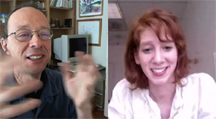 |
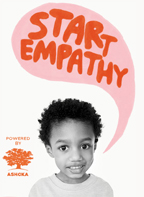 |
Laura Zax is Editor of the
StartEmpathy.org website. Start Empathy, an initiative of
Ashoka, is a community of
individuals and institutions dedicated to building a future in which every
child masters empathy. Laura is also
CEO & Co-Founder - The Nighttime Adventure Society. "I make music and
mischief". |
"Empathy is critical both to individual human development and to our
collective ability to solve problems and build a stronger society.
Cultivating empathy can start with really simple actions, like taking
the time to stop, breathe, and listen when your child comes to you with
a problem. It can start with a bedtime story. It can start by
understanding what your strengths are as a school or as a teacher, and
in honing in on ways you can embed empathy into your teaching, culture,
and behavior. The bottom line: it can start today."
Sub Conferences:
Education
|
|
|
|
Joey Katona: How to Build a Culture of Empathy in Education
|
 |
 |
Joey Katona is the Project Manager for the Empathy Initiative (StartEmpathy.org)
at the world’s leading social entrepreneurship organization, Ashoka. He
leads a small core team working to launch the Empathy Initiative in the US
and globally. He participates in the strategic development of the start-up
and works to creatively manage the day-to-day operations. |
Joey develops
ways to help the team stay on track toward its goals -- coordinating,
sourcing, and following up on various partner and funder leads and
helping manage external relationships. "Start Empathy, is
a community of individuals and institutions dedicated to building a
future in which every child masters empathy...
Start Empathy is not out to build a single program,
curriculum, or silver-bullet fix. Rather, we're working to unleash
demand for empathy as a core 21st century skill – collaborating with
social entrepreneurs, educators, parents, and key players in the media,
business, and academic sectors to make empathy as essential as reading
and math in early education. Success will take all of us, and will
require rethinking how we parent, educate, and raise our children in a
world that is changing faster than ever before. "
Sub Conferences:
Education
|
|
|
|
Meg
Lyons: How to Build a Culture of Empathy & Compassion with
Charter for Compassion Pakistan
|
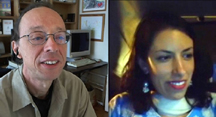 |
|
Meg Lyons is
Executive Officer of the
Charter for Compassion in Pakistan. Meg talked to us via her laptop while
being driven through the streets of Karachi, Pakistan at night. It really
brought home the power of communications technology to bring people
together. Meg talked about her value of courage
and authenticity, as well as, about her work of promoting the Charter for
Compassion in Pakistan. |
'The Charter of Compassion is a cooperative effort to restore not only
compassionate thinking but, more importantly, compassionate action to
the center of our lives. Our programs, tools, and activities allow our
stakeholders and partners the opportunity to explore the value of
collaboration, empathy, and compassion within their own respective
entities, and institutionalize these positive changes across all
sections of society. '
Sub Conferences:
Education
|
|
|
Muna Awad &
Edwin Rutsch: Building Empathy with Charter for Compassion - Jordan
|
|
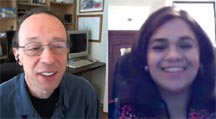 |
|
Muna
Awad is
Programs Director at the
Charter for Compassion-Jordan.
She has 15 years of experience working in
education as teacher, trainer and private tutor. She worked as head of
department for training youth. Muna
developed creative positive parenting tools: “Mother’s ToolBox” to help
parents creatively overcome the challenges they face raising their children
and be able to inspire them to become better people. She feels
education is the best way to build a culture of empathy and compassion.
Sub Conferences:
Education |
|
|
Lisbeth
Holter Bruda: Dialogs on How to Build a Culture of Empathy
in Norway |
 |
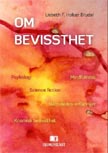 |
Lisbeth Holter Brudal is a psychologist living in Oslo,
Norway. She is the author of many books, including,
Om bevissthet (About
Consciousness) which is about psychology, mindfulness, science fiction,
near-death-experiences and cosmic consciousness
and the terror attack 22.juli 2011 in Oslo
Lisbeth has developed courses in Empathic Communication. One
course (20 hours) for professionals who want to use Empathic Communication
in their work and one course (40 hours) for trainers in the method. |
The trainers
give the 20-hours courses, one-day seminars introducing the method,
participate in different congresses about education and also give
lectures about Empathic Communication at different university colleges.
The trainers also learn during the 40-hours course how to educate other
trainers. Empathic Communication, as a method, has been presented on
Norwegian TV.
Sub Conference: Education
|
|
|
Sam
Chaltain: Dialogs on How to Build a Culture of Empathy in Education
|
 |
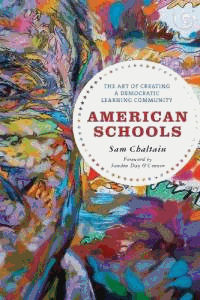 |
Sam Chaltain is a DC-based writer and education activist. He works
with schools, school districts, and public and private sector companies to
help them create healthy, high-functioning learning environments. He is
Author coauthors five books including, American Schools: The Art of
Creating a Democratic Learning Community |
. We talked about how to transform schools to create
culture of empathy. For Sam it's important that all students
feel hear and seen and are able to express themselves.
Sub Conferences:
Education
|
|
|
Lesley Grant & Edwin Rutsch:
How to Build a Culture of Empathy with Mindfulness with Couples, Parents &
Children
|
|
 |
|
Lesley Grant, founder and director of
Marin Mindfulness
a unique community cooperative program that teaches mindfulness and
loving-kindness practice to parents, teachers and children,
preschool-preteens, speaks about how she is adapting mindfulness and
applied mindfulness practices for children, parents and co-parenting
couples, toward developing a culture of empathy.
She says: “Parents who practice mindfulness can develop the
capacities to raise children who seek creative non-violent solutions to
problems.” Mindful family relationships and both parents and children’s
peer relationships are a foundation of a culture of empathy. Sub Conference: Education
(Mindfulness) |
|
|
|
Dan
Roberts: Dialogs on How to Build a Culture of Empathy with Clowns
|
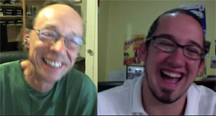 |
 |
Dan Roberts is Founder and Executive Director of the Red
Nose Foundation in Indonesia which is transcending boundaries through
play. |
Red
Nose Foundation provides children with a place to learn and play
together, no matter one’s race, religion or economic standing.
Through the structured study of physical arts (circus), the children
learn that a success is celebrated as a team, and a failure is to be
challenged together. Red Nose Foundation uses a three-step model
to support the development of empathy in our students and to teach them
skills to build and reach their dreams. The first stage is pure arts
exploration. The program was one of winners of the
Activating Empathy
competition.
Sub Conferences:
Education and
Arts
|
|
|
|
Dina Buchbinder & Edwin Rutsch: Building a
Culture of Empathy with Sports
|
 |
|
Dina Buchbinder is director of Sports for Sharing. "Our
solution is integrating civic education into children’s lives through games
and sporting activities. Sports for Sharing is driven by three objectives:
raising social awareness, heightening cultural appreciation and promoting
healthy living." One of the values the program promotes is empathy.
The program is one of the 15 finalists out of 600 for the
Activating Empathy
Competition.
|
We talked with Dina about the program and how if
fosters empathy. She says, empathy is like seeing from many different
perspectives, like a prism or kaleidoscope. The opposite is like being in a
dark box with no light. The program was one of 15 Finalists in the
Activating
Empathy competition.
Sub Conferences:
Education
|
|
|
|
Hannah Adams & Edwin Rutsch:
Dialogs on How to Build a Culture of Empathy with Games
|
|
 |
|
Hannah Adams is
Education Coordinator at the Greater New Orleans Fair HOUSING Action
Center. In their Equal Opportunity
Game, students are assigned characters and must work in teams to
find the housing that best meets their characters’ needs. Students learn
to empathize with and take the perspective of others.
Some of the
characters “experience” housing discrimination, and students see the
impact discrimination has on access to education, healthcare, jobs, and
other resources via “situation cards” that they draw periodically. The
game was one of 15 Finalists in the
Activating Empathy competition.
Sub Conferences:
Education |
|
|
|
Mark Rodriguez & Edwin Rutsch: Dialogs on How to Build a
Culture of Empathy with Arts Education
|
|
 |
|
Mark Rodriguez is Executive Director of
Changing Worlds
in Chicago, Illinois.
'Changing Worlds is an educational arts nonprofit organization whose
mission is to foster inclusive communities through oral history, writing
and art programs that improve student learning, affirm identity and enhance
cross-cultural understanding.
In a global
landscape where lack of empathy leads to stereotyping, violent behaviors
and lack of human connections, Changing Worlds uses the power of personal
narratives with writing and the arts to build inclusive learning
communities, affirm identity and build cultural and human connections.'
The program was one of 15 Finalists in the
Activating Empathy competition.
Sub Conferences:
Education and
Arts |
|
|
|
Dina Buchbinder & Edwin Rutsch: Building a
Culture of Empathy with Sports
|
|
 |
|
Dina Buchbinder is director of Sports for Sharing. "Our
solution is integrating civic education into children’s lives through games
and sporting activities. Sports for Sharing is driven by three objectives:
raising social awareness, heightening cultural appreciation and promoting
healthy living." One of the values the program promotes is empathy.
The program is one of the 15 finalists out of 600 for the
Activating Empathy
Competition.
We talked with Dina about the program and how if
fosters empathy. She says, empathy is like seeing from many different
perspectives, like a prism or kaleidoscope. The opposite is like being in a
dark box with no light. The program was one of 15 Finalists in the
Activating
Empathy competition.
Sub Conferences:
Education |
|
|
|
Hannah Adams & Edwin Rutsch:
Dialogs on How to Build a Culture of Empathy with Games
|
|
 |
|
Hannah Adams is Education Coordinator at the
Fair Hosing Action Center in New Orleans. In their Equal Opportunity
Game, students are assigned characters and must work in teams to
find the housing that best meets their characters’ needs. Students learn
to empathize with and take the perspective of others.
Some of the
characters “experience” housing discrimination, and students see the
impact discrimination has on access to education, healthcare, jobs, and
other resources via “situation cards” that they draw periodically. The
game was one of 15 Finalists in the
Activating Empathy competition.
Sub Conferences:
Education |
|
|
|
Mark Rodriguez & Edwin Rutsch: Dialogs on How to Build a
Culture of Empathy with Arts Education
|
|
 |
|
Mark Rodriguez is Executive Director of
Changing Worlds
in Chicago, Illinois.
'Changing Worlds is an educational arts nonprofit organization whose
mission is to foster inclusive communities through oral history, writing
and art programs that improve student learning, affirm identity and enhance
cross-cultural understanding.
In a global
landscape where lack of empathy leads to stereotyping, violent behaviors
and lack of human connections, Changing Worlds uses the power of personal
narratives with writing and the arts to build inclusive learning
communities, affirm identity and build cultural and human connections.'
The program was one of 15 Finalists in the
Activating Empathy competition.
Sub Conferences:
Education and
Arts |
|
|
Daniel Bassill & Edwin Rutsch: Dialogs on How
to Build a Culture of Empathy
|
|
 |
|
Daniel Bassill is founder of Tutor/Mentor Connection and CEO of
Tutor/Mentor Institute, LLC
Sympathy = random acts of kindness. The philanthropic systems of support
for charity are built more on sympathy than empathy, thus they are not
consistent streams of support that are required to solve
complex
problems in many places. How to build a culture of empathy?
a) information collection. b) advertising/public awareness to increase
number looking at info. c) facilitation/building understanding = like what
happens in faith groups every week. d) action – people using ideas in many
places, where they provide time, talent, dollars, leadership, advocacy,
etc. to help kids to careers.
Sub Conference: Education |
| |
|
|
Carolyn Zahn-Waxler |
Empathy Expert Big Page: |
 |
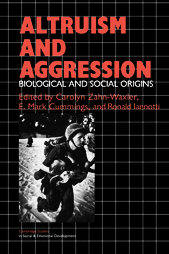 |
Child Development
"Throughout her career Carolyn has studied the origins and development of
empathy and caring behaviors beginning in the first years of life. These
longitudinal studies have focused on the role of genes, temperament,
family life and socialization experiences that foster or impede compassion
and altruism in children. She has also conducted longitudinal studies on
(a) the role of emotion in the development of psychopathology in
adolescents and (b) risk and protective factors in the development of
conduct problems."
Center for Investigating Healthy Minds |
|
|







